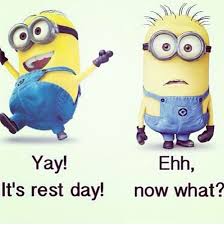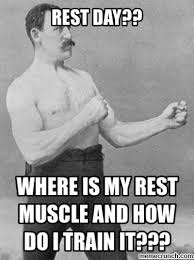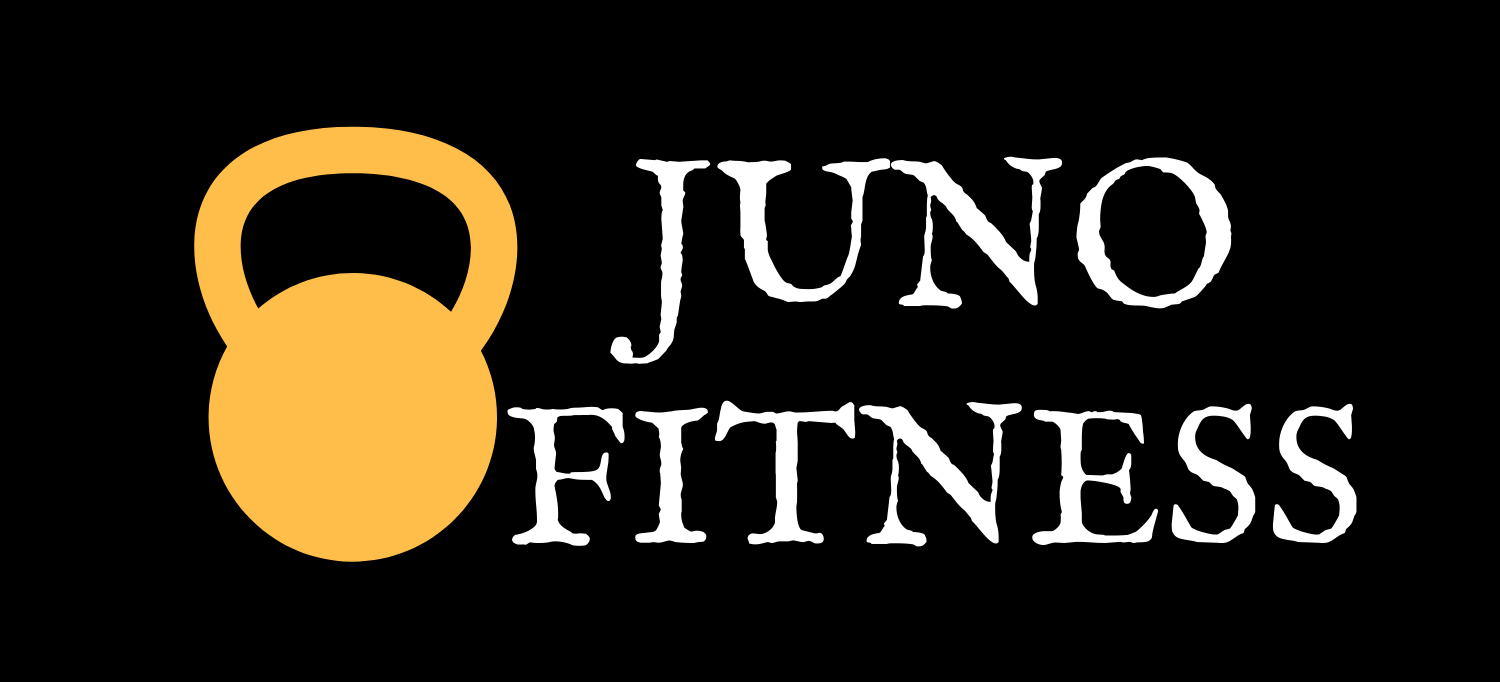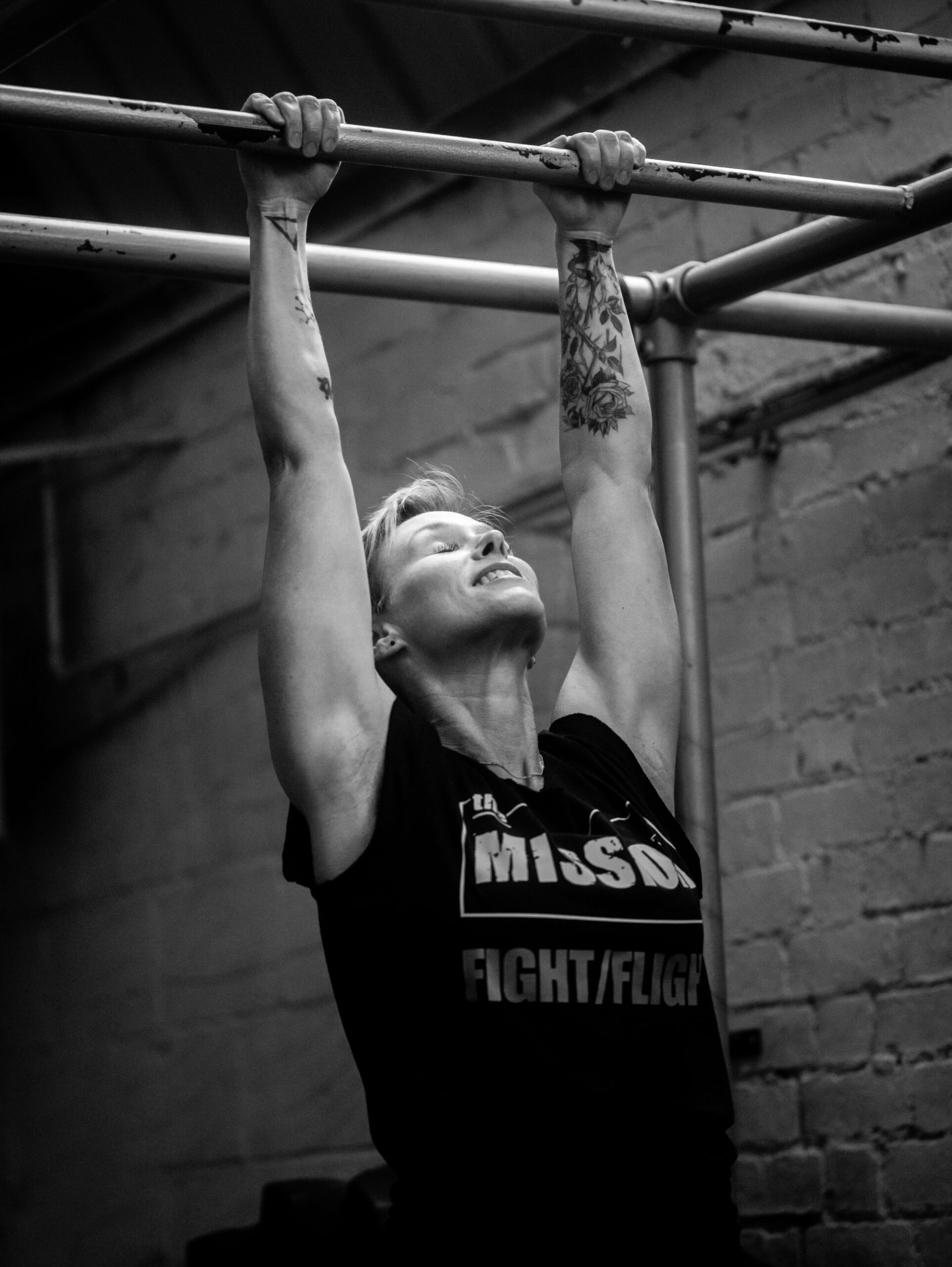
What should you do on rest days and how do you know that you need one? Should I even take rest days? Or can I lift every day? Does a rest day mean I shouldn’t do anything at all? What should I do on rest days? Can I go for a walk/do yoga on a rest day? How do I know how many rest days to take?
The answer is that rest should be something you love as much as strength training. It’s the yin to the yang. And rest doesn’t mean sitting on your bum all day (even if you do love that too!)
A good training programme will balance hard days and easy days. Hard weeks and easy weeks. So yes, you can practice daily with a sensible routine of high intensity *workouts* and low intensity *practice* sessions IF you pay attention to yourself.
Before we go much further, it’s important to remember that your self-worth isn’t tied up in how much activity you do. So yes you can, but no you don’t HAVE to train hard every day, because more is not better.
Better is better.
And exercise isn’t a punishment.
 Now, to the subject of what should you do on rest days and how do you know that you need one. A wise person once said that the first sign of exhaustion is lack of enthusiasm. So, here’s how that might look in practice:
Now, to the subject of what should you do on rest days and how do you know that you need one. A wise person once said that the first sign of exhaustion is lack of enthusiasm. So, here’s how that might look in practice:
If you’re at a point where your body feels strong and eager to move and lift, and you’re feeling like you want to work hard every day, there’s no reason you can’t run with that feeling *while it lasts*. If you’re exposing your body to enough intensity, at some point *that feeling will stop*. The enthusiasm will wane and your body will feel tired/sore; and there’s your sign to slow down and back off.
Not to stop moving altogether mind, but to a) reduce how long your training session lasts, b) do fewer repetitions, c) use lighter weights or d) do something entirely different (walking, running, mobility, stretching, dancing, swimming etc)
Come back to your planned training session tomorrow and decide how you feel – is it another day of not lifting at all or a reduced rep/weight/length of training time kinda day? Or are you back to full power and full of beans and ready to go hard?
There is no magic number of rest days you should take. In fact, the word *rest* has quite a binary feel to it and so can be hard to define. It might be more useful to call them Deload Days. This implies backing off, and has more nuance attached, and therefore more room for doing movements that you enjoy and applying the strength that you’ve gained to those movements.
Everything feels nicer when you’re your body feels strong and powerful, and training should be the gateway to enjoyment of your body.
De-load can last one day or weeks at a time and it can be intentional or happen as a part of the rhythms of life (menstrual cycles are a PERFECT in-built de-load rhythm, for example, and holidays can be a big planned de-load into your year)
The amount of time you need to recover between sessions is based on your body’s feedback. It is so important that we learn to first really *feel*, and then *understand* and follow, the messages that our bodies are giving us, because from this understanding comes empowerment.
This empowerment from understanding your body spans beyond strength training, but strength training is a great place to start listening to our bodies, because the effects are so obvious.
Here are some absolutes to help you if it’s not quite obvious –
- Soreness past 2-3 days after a hard workout
- Niggling injuries
- Being overly fatigued despite getting 6-9 hours sleep
- Not being able to make a lift that you know you could do more than a few reps of last time you tried, and that happening for more than a few workouts in a row.
You know your body, if you learn to pay attention.

So what should you do on rest days to help your body to recover? (and every other day in fact!)
- Sleep – sleep deeply enough, even if it’s not as long as you’d like, go for quality over quantity. If you’re having trouble sleeping, there are things that can help: Make sure you’re eating enough vitamins and minerals (magnesium for example is just one thing that we’re often slightly deficient in that can affect sleep quality, but there are others too), eat a meal high in carbohydrates for your evening meal (carbs help you to sleep), don’t drink too much of anything (especially alcohol!) close to bedtime so (if you’re anything like me) you don’t get disturbed by night-time weeing, have a hot shower near to bedtime (your body cooling down will trigger sleep), read a book before bed and for goodness sake put your phone down at *least* an hour before bedtime.
- Eat enough protein and fat – Think of nutrition for training and recovery in this way, carbs make you go, protein and fat keep you coming back. Vegetables give you those vitamins and minerals we talked about. Hungry people don’t sleep well OR get stronger. And hungry people don’t heal well. You need to heal between training sessions. Hungry doesn’t just mean a feeling, you can be overfull and undernourished. And seriously, hungry people don’t get stronger.
- Move and mobilise – you need to move your body to keep it working well. Your body is primarily made of fluids. Every time you move, you help to push these fluids around your body to make all of its internal processes move fluidly and efficiently. If they don’t get moved around, the processes of your body will be sluggish and slow. And remember, a body that doesn’t move, gets good at not moving. You’ve probably felt before that DOMS (delayed onset muscle soreness) is much worse after you’ve been sitting in one place for too long.
Just give me a number; how many rest days a week should I take?
As a rule of thumb, whether you’re a beginner or badass, you’ll need between 1-4 rest days a week. Think of it like this, 2-3 days a week of high intensity work = 104-156 hard training sessions a year. That’s going to make a difference. Everything else you do should support you being able to maintain that consistency and prevent injury, fatigue, soreness and not getting any stronger because you’re always pushing hard.

So what should you do on rest days? Or should I say “de-load” days then if not a day of sitting around?
Here are some options:
- A reduction of intensity or duration of your training sessions
- Mobility and stretching instead of lifting
- Low intensity steady state activity like walking/cycling/swi
mming/dancing round the kitchen with the kids - Something else that allows you to enjoy and appreciate your body, this is the missing piece with how so many people approach exercise. It is about enhancing your life, not about punishing yourself.
Rest days CAN also look like doing absolutely nothing (and sometimes that’s necessary – long car journeys for example), but nothing is what you do when you go to bed as well, so maybe at least throw in SOME movement during the day to balance it out! Even lionesses sunning themselves on rocks all day get up and stretch majestically at intervals.
And we women are nothing if not majestic creatures.

If you’re on my mailing list you’ll be the first to hear about the next opening of Strong Girls Kettlebell Club, where de-load, lighter and heavier days and personalised advice is factored in to your programme – sign-up is here:



